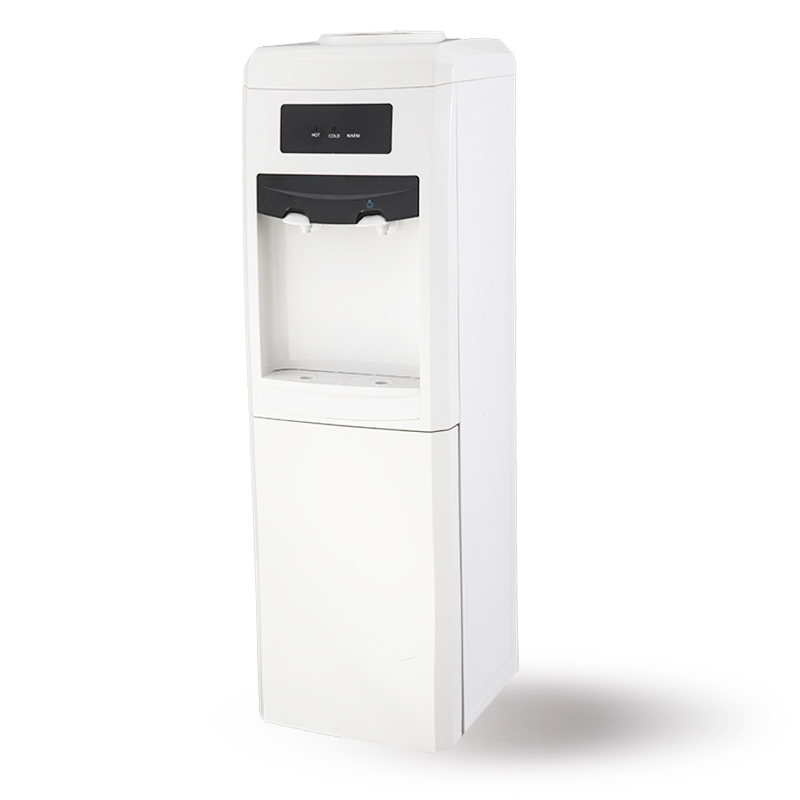How Your Body Uses Water
2021-05-08
You may be aware that 60% of the adult human body is made up of water, but have you ever thought about how your body uses water? While we tend to think about the fact that we eat food in order to fuel our bodies, we don’t typically think about water in the same way. We need water to survive, and healthy hydration is required for your body to function to its fullest potential. Just as food fuels us in our everyday lives, water keeps our bodies running at their best. But how does your body use water?
Today, Optimum will be looking at the various ways that your body uses water on a daily basis. By the time you’re done reading this article, you’ll have a better understanding of how water works in your body, why you need to drink plenty of water in order to stay healthy, and how to spot typical signs of dehydration. With this information, it is likely that you’ll have a renewed appreciation for water and its role in your daily life!
How Water Works in the Body

Water is an important source of life and, when looking at the way that it works in the human body, it quickly becomes evident that we simply need water to live. Water is responsible for facilitating various physiological processes in the human body, including protection, elimination of waste, and digestion. So how does staying hydrated keep your body in good working order?
Let’s start by thinking about the way the body’s digestive process works. The first stop in the process of digestion is the mouth. Here, saliva plays an important role in beginning the process of digestion by working to break down food as we ingest it. Saliva is primarily water, and our body needs saliva to break our food down into chunks so that it can proceed through the digestive process. Without staying hydrated by drinking water, your body would be unable to produce the saliva needed for this important step in the process.
After being mixed with the meal you have consumed, water continues through your stomach before working its way to the small intestine. This is where most of the water that you drink is absorbed into the body. In the small intestine, there is a lining known as villi, which allows for the maximum absorption of water. After water is absorbed in the small intestine, it is then transported through your body via blood. In this way, drinking plenty of water helps you maintain a healthy supply of blood in the body.
Water is also an important part of the way the human body’s kidneys work. The kidneys are responsible for removing unwanted material from the body through the process of urination. Without maintaining healthy hydration levels, your kidneys are unable to perform this process effectively and would be unable to filter your body’s blood for waste and toxins that could be harmful to your health.
Finally, let’s talk about how water benefits another organ in the body: your skin. Our skin performs the process of perspiration (sweating) in order to remove a variety of compounds from the body. Sweat is composed of minerals, electrolytes, and of course, water. Without staying hydrated by drinking plenty of water, your body would be unable to sweat effectively, which could have serious negative impacts on the quality of the skin. Perspiration is also important because it keeps the body cool, and water is an important part of this as well. When you sweat, water leaves your body through the pores in your skin. That moisture gathers on your skin, helping you stay nice and cool. This wouldn’t be possible without staying hydrated.
How to Recognize If You Aren’t Drinking Enough Water
Now that you know how important it is for your body to stay hydrated, let’s talk about how you can identify if you aren’t drinking enough water. After all, it’s easy to get busy in day-to-day life and forget to drink water regularly, which can cause you to become dehydrated. So, what are some typical signs of dehydration?
Now that you know how important it is for your body to stay hydrated, let’s talk about how you can identify if you aren’t drinking enough water. After all, it’s easy to get busy in day-to-day life and forget to drink water regularly, which can cause you to become dehydrated. So, what are some typical signs of dehydration?
When the body is dehydrated, you are likely to notice yourself losing the ability to focus, you may have a headache, and you may notice a drastic drop in your energy levels. While these can be subtle effects that can be hard to recognize, you should always be aware of how you’re feeling so that you can identify whether or not you’re dehydrated. If you happen to notice any of these symptoms, take care of them immediately by drinking water. You’re likely to notice yourself feeling better in no time!
Finally, the last way to tell whether your body is dehydrated is by simply paying attention when you use the bathroom because your urine is incredibly indicative of your level of hydration. When the body is dehydrated, your urine will appear darker. When you are well-hydrated, your urine will be lighter in color.



 English
English 中文简体
中文简体



